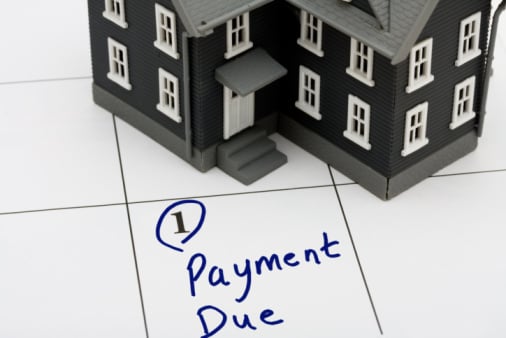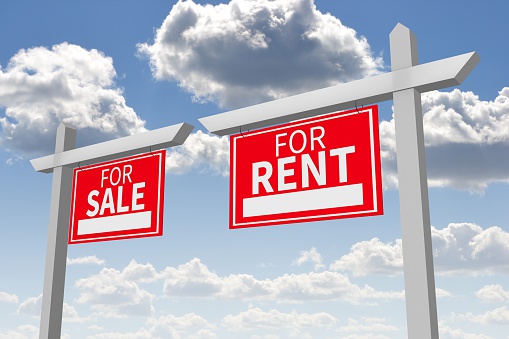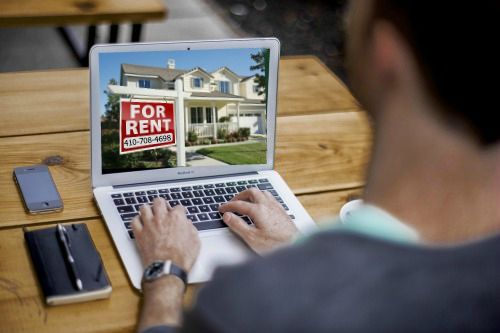Mortgage delinquencies in America seem to be on a sharp decline as people climb out of debt and put a little more into their savings accounts.
This, paired with the improving job market and stricter loan application processes, has allowed more homeowners to remain in their homes at an affordable rate. This is especially true in Maryland where it is estimated that one of the largest drops in mortgage delinquency rates in the country will result as we move into 2016 (approximately 4.17 to 2.83 percent).

However, sometimes you find yourself in a situation where you own your home but cannot make the mortgage payments for one reason or another and you do not want to (or you can’t) sell it. Maybe you have been laid off from your job, your family has outgrown the “starter house” you purchased years ago, or a job promotion has forced you to relocate.
If you find yourself in a situation where you simply cannot pay your mortgage there are several options for you to consider:
- Get a loan modification
- Work out a repayment plan with your lender
- Get forbearance
- Short-sell your home
- Give your home back to your lender through a “deed-in-lieu of foreclosure”
However these options are less than ideal, especially if you had planned on keeping your home for many years to come.
Today we will discuss how temporarily renting your Maryland home can help you cover your mortgage payments so that you can keep your home, and the steps you should take if you plan to make that kind of financial move.
Renting Your Home Is An Option
Though many Americans believe the worst is over as far as the housing crisis is concerned, and America has seen a lot of upturn economically, it is still suggested that approximately 60% of people find the idea of owning their own home to be “less appealing.”
While this may not be the case for you personally, it is safe to say that this consensus creates a higher demand for rentals throughout the country as people have become accustomed to the idea of renting as a long term option. This means your home will be in demand should you decide to place it on the market as available.
The Pros and Cons to Renting Your Home
The biggest financial advantage you have for keeping your home and leasing it (as opposed to selling it or walking away) is that you will retain the equity you have built into it. This equity has the potential to build over time and can lead to a higher market price for your home, should you decide to sell it in the future.

Another great reason you might want to rent your home, even if you are currently struggling to pay your mortgage payments, is that most homes can achieve a monthly rental amount higher than the mortgage. This means you would be able to make your payments without falling delinquent and even earn some additional supplemental income, even if you are paying rental property fees.
This extra monthly income could then be put towards paying down significant debts you may have, cushioning your retirement accounts, investing in more properties, or even just saving it for a rainy day.
As with anything, there are some major downsides to renting a home you cannot afford to make payments on.
In order to help your financial situation, you must find the perfect tenant for your home, budget and pay for maintenance and repairs, deal with the hassle of a tenants paying rent each month, and more. Plus, if you cannot find a cheaper place to reside in once you move out and rent your home, you will continue to find yourself in a poor financial situation that continues to worsen.
One critical thing to follow up on before you become the landlord of your home is to double check your mortgage provisions.
There have been some instances where mortgage lenders have placed provisions within a loan agreement stating that you are not allowed to make mortgage payments unless you are occupying the home. This would negate the option to lease your home in order to cover your mortgage payments and could be seen as a technical default on your mortgage. Though having nothing to do with missed payments, this breach of contract could have serious consequences.
First Steps to Follow for Renting Your Home
In order for you to successfully turn your home into a rental property to help maintain your monthly mortgage payments, there are some important steps that should be followed.
- Prepare your home. If you are looking to save your home by renting it out, chances are money is low. However, there are some inexpensive ways to make your home more appealing to tenants that will increase your rental value and get it leased quickly.
- Run an ad. Aggressively advertising your home through multiple outlets is the fastest and easiest way to get the word out that your home is on the market. By spreading your reach far and wide you will increase your chances of finding a great tenant to lease your home.
- Thoroughly screen all tenants. Do not rush the leasing process even if you are desperate to get your home rented. In the long run, following a thorough and legal complaint process to get the highest quality tenants in your home will make your financial situation a lot more manageable.
- Draft a solid lease agreement. You do not want to lose this home or you would have sold it or walked away from it. The lease agreement that you and your tenants sign is your property’s best protection so take this contract seriously and do not forget to cover important things such as rent collection processes, maintenance responsibilities, pet policies, and how to break a lease.
- Do not disappear after your home is leased. Tenants want to know that you are available whenever they have any issues. It is important you keep an open line of communication with your tenants so they trust in your abilities as a landlord. It is also wise to routinely check on your property to make sure it is being cared for appropriately.
This is just a starter list of some of the most important first steps you should take when considering turning your home into a rental property. There is a lot that goes into becoming a landlord, and during a chaotic time in your life, it may be better to enlist the help of a highly qualified property management group for a minimal monthly rental property fee.
Renting your home in order to save it is a viable option for many people willing to put the work into being a good landlord. This can be a reliable way to cover your monthly mortgage payments while bailing yourself out of a personal financial crisis.

As mentioned above, there is lot that goes into leasing a home. However, if you have the right mindset, a plan in place, and a good property management team backing you, finding a tenant to pay your mortgage for you will be easier than you thought.
If you are feeling overwhelmed with the idea of becoming a landlord, consider contacting Bay Management Group for all of your leasing needs. Specializing only in property management, and priding itself as having some of the lowest rental property fees around, Bay Management Group can answer all of your questions and manage your leased home so you have the peace of mind that when you are ready to move back in, it will be as though you never left.
